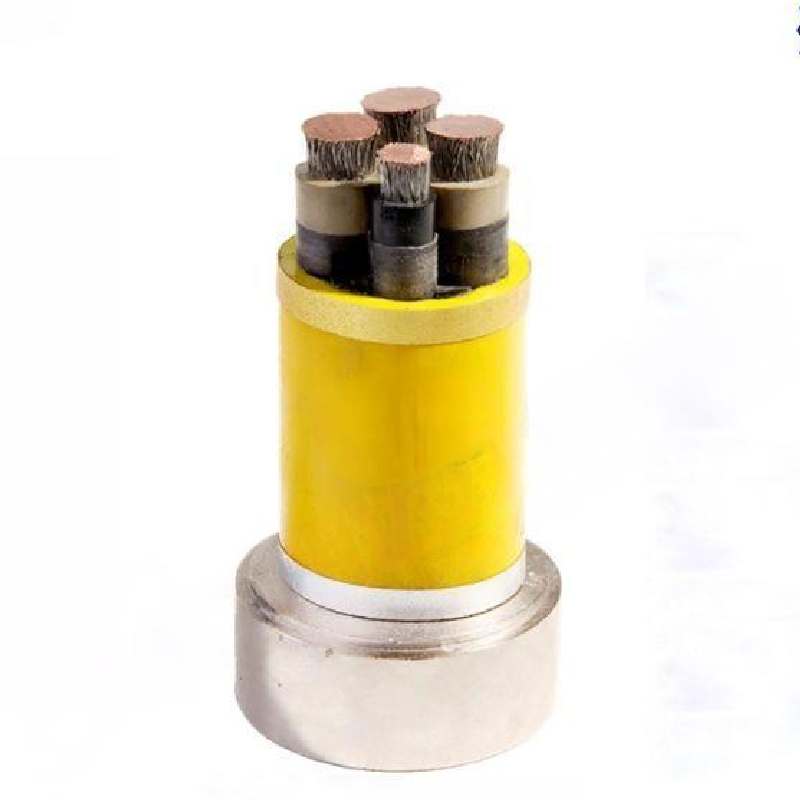Dec . 04, 2024 09:29 Back to list
stainless steel ball valve
The Versatility and Advantages of Stainless Steel Ball Valves
In the world of industrial applications, valves play a crucial role in controlling the flow of liquids and gases. Among the myriad types available, stainless steel ball valves are increasingly favored for various reasons, including their durability, reliability, and efficiency. This article delves into the features, benefits, and common applications of stainless steel ball valves.
What is a Stainless Steel Ball Valve?
A stainless steel ball valve is a type of valve that uses a spherical obstruction (the ball) to control the flow of fluids. When the valve is open, the ball turns to allow fluid to pass through. Conversely, when the valve is closed, the ball rotates, effectively blocking the passage. This mechanism provides a reliable means of regulating flow and is often preferred in both commercial and industrial settings.
Key Features
1. Construction Material The primary advantage of stainless steel ball valves is their construction material. Stainless steel is known for its resistance to corrosion, which is critical in environments where valves are exposed to moisture, chemicals, and other corrosive substances. Common grades used include 304 and 316 stainless steel, each providing different levels of corrosion resistance.
2. Sealing Mechanism Most stainless steel ball valves feature a robust sealing mechanism, typically made from PTFE (polytetrafluoroethylene) or other high-performance materials. This ensures a tight seal, preventing leaks and enabling the valve to maintain pressure in the system.
3. Full Port vs. Reduced Port Stainless steel ball valves come in two main designs full port and reduced port. Full port valves have a larger diameter that matches the pipe size, allowing for minimal resistance to flow. Reduced port valves, while smaller in diameter, can be advantageous in applications where a drop in pressure is acceptable.
4. Actuation Options Stainless steel ball valves can be manually operated but are also available with automated actuation. Electric or pneumatic actuators allow for remote operation and can integrate with automated systems, enhancing their usability in large-scale applications.
Advantages
1. Durability One of the standout features of stainless steel ball valves is their longevity. Unlike valves made from other materials, stainless steel does not rust or corrode, making it an excellent choice for diverse environments, from chemical plants to wastewater facilities.
stainless steel ball valve

2. Low Maintenance Due to their sturdy construction and efficient sealing, these valves typically require minimal maintenance. The design allows for easy inspection and cleaning, which is crucial in facilities that prioritize hygiene and efficiency.
3. Flow Control Stainless steel ball valves provide excellent control over flow rates. The quick quarter-turn operation allows for immediate opening or closing, making them ideal for applications requiring rapid response times.
4. Versatility These valves are suitable for a wide range of applications, including oil and gas, pharmaceuticals, food and beverage, and water treatment. Their ability to handle high pressures and temperatures makes them adaptable for various operational conditions.
Common Applications
1. Oil and Gas Industry Here, stainless steel ball valves are employed in pipelines to regulate the flow of crude oil and natural gas. Their ability to withstand harsh conditions and corrosive materials makes them indispensable.
2. Water Treatment In municipal water systems and wastewater treatment plants, these valves help control the flow of water and ensure that systems operate efficiently and safely.
3. Food and Beverage The sanitary design of stainless steel valves meets strict health regulations, making them ideal for applications in food processing and beverage production.
4. Pharmaceuticals With the need for cleanliness and precision in this industry, stainless steel ball valves help maintain product integrity, preventing contamination.
Conclusion
In conclusion, stainless steel ball valves are an excellent choice for industries requiring reliable flow control and durability. Their corrosion-resistant properties, low maintenance needs, and versatility make them a preferred option in various settings. As industries continue to evolve, the role of stainless steel ball valves remains crucial in ensuring the efficient and safe operation of systems across multiple sectors. Whether you are involved in manufacturing, engineering, or system design, understanding the benefits of stainless steel ball valves can lead to improved operational efficiency and longevity in your projects.
Share